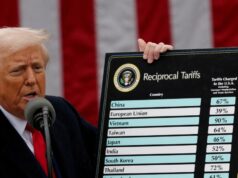The suspension of three deputy ministers for making derogatory comments against Prime Minister Narendra Modi and India, is probably the first positive step taken by Prime Minister Mohammad Muizzu to arrest a steep decline in ties with Delhi since his election last year.
But as the saying goes, one swallow doesn’t make a summer. Muizzu came to power on an anti-India plank, indicative of his desire for greater autonomy from a country that looms large on his shores. In subsequent statements, he has said he wants to be equidistant from major powers, whether India or any other (read China).
Turkiye was his first port of call and while there was nothing anti-India in the agreements signed there or the statements made, troubling from Delhi’s point of view is President Erdogan fishing in these waters. He’s close to Pakistan, reflects its view on Kashmir and has a very pronounced Islamic orientation.
China is the other country Muizzu has been courting and it is widely expected Beijing with its deep pockets could make a comeback in that country, perhaps displacing India’s role in some key projects. Interesting to note that Muizzu has got $80 million from the UAE as additional funding for the Male airport project, for which India had earlier provided $136 million. He could have sought more funds from India but deliberately chose not to.
Commentators like Dr C Raja Mohan say India needs to deepen the diplomatic engagement with Muizzu, and seek to understand his motivations and aspirations. Ironically, his desire for greater political and diplomatic flexibility may not be very different from India’s own goal, to maximise its “strategic autonomy”. India may need to steer clear of conversations on security or military collaboration and focus on infrastructure projects and climate and sustainability issues.
India may also need to broaden its engagement with Maldivian society since Muizzu’s anti-India election campaign reflected the sentiments at the grass roots. Readers will recall the attack by Islamic radicals on a Yoga gathering organised by the Indian embassy in 2022. They said Yoga did not align with their Islamic beliefs.
According to a study last year by India’s Centre for Joint Warfare Studies (CENJOWS), Islamisation and radicalisation has grown. Former prime minister Nasheed was forced to quit in 2013 in the wake of protests over his liberal policies. His alliance with the Islamic Adalath Party did not help.
The study says “ISIS and Al Qaeda are the two terror groups that have managed to influence the Maldivian youth population to join their ranks as foreign fighters. Al Qaeda was the first to establish a branch there as early as 2009.” Although it split in 2014, one faction aligned with the Al Nusra Front and the other with Baghdadi’s ISIS, the study notes that “radicalization … was facilitated by the extensive dissemination of Salafist-Jihadist material in the local tongue.”
This is of particular concern to India given the proximity to Kerala and the fact that it remains the favoured destination for many Maldivians seeking medical treatment, education or for leisure travel. The same state has seen its people join the ranks of ISIS and other radical groups. Whether Maldivians were involved in this, merits a close study.
India’s concern over the new political dispensation in Male is valid, but only underscores the need to deepen engagement. However much Muizzu may seek to diversify ties away from India, he cannot ignore geography.
India also needs to introspect on how it has treated its island territories. For decades these islands were ignored, and merited no political attention. It is now being remedied. The prime minister’s visit to Lakshadweep must be seen in this context, with the focus on developing tourism to benefit its own 70,000 residents. These islands, incidentally, are part of the Maldivian chain.
Lakshadweep we are told, is too small to be of any strategic value, but one may need to borrow a lesson from China, which has built air and naval bases on shoals and rocky outcrops in the middle of the South China Sea.
Also see:
In a career spanning three decades and counting, Ramananda (Ram to his friends) has been the foreign editor of The Telegraph, Outlook Magazine and the New Indian Express. He helped set up rediff.com’s editorial operations in San Jose and New York, helmed sify.com, and was the founder editor of India.com.
His work has featured in national and international publications like the Al Jazeera Centre for Studies, Global Times and Ashahi Shimbun. But his one constant over all these years, he says, has been the attempt to understand rising India’s place in the world.
He can rustle up a mean salad, his oil-less pepper chicken is to die for, and all it takes is some beer and rhythm and blues to rock his soul.
Talk to him about foreign and strategic affairs, media, South Asia, China, and of course India.





